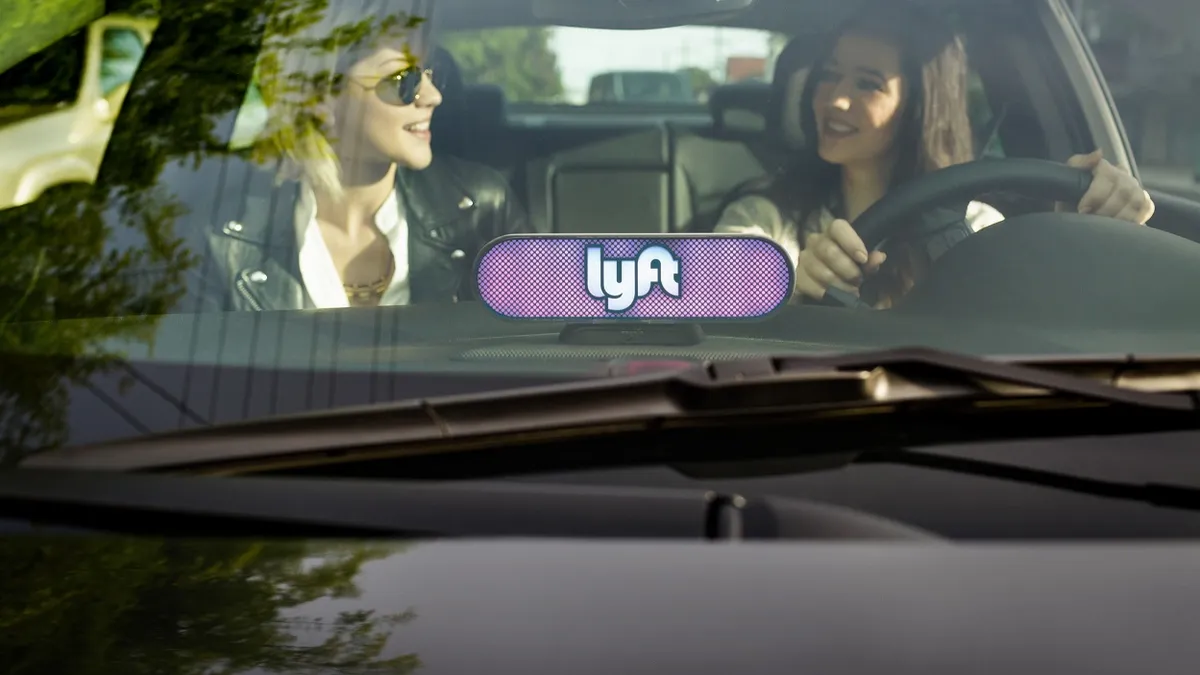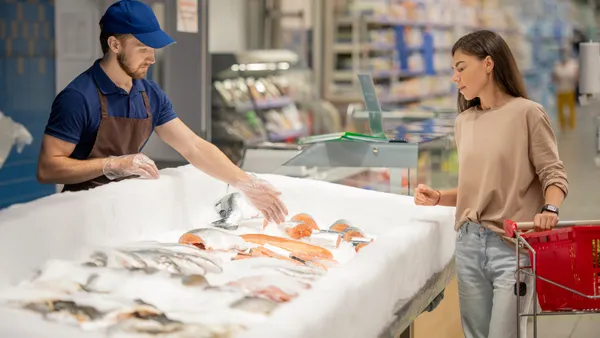Dive Brief:
- Lyft is expanding its Grocery Access Program to 15 U.S. and Canadian cities after a successful pilot program in Washington, DC, according to Mashable. The program offers rides for $2.50 to and from the grocery store for families in low-income or rural areas deemed food deserts.
- The pilot was launched in January and will now be available in cities including Atlantic City, New Jersey; Chicago; Columbus, Ohio; Los Angeles; Miami; Phoenix, Arizona; Portland, Oregon and Atlanta, Georgia.
- Lyft will partner with community groups like food banks and farmers markets in each city to determine the best way to identify participants for the program and distribute the subsidized rides. In Washington, participants were identified based on childrens' school enrollment.
Dive Insight:
Corporations, government agencies and nonprofits have made some innovative efforts recently to address food deserts. Lyft’s program expansion follows recent news from the U.S. Department of Agriculture that it will now allow SNAP recipients in New York to purchase groceries online through Walmart, Amazon and ShopRite. The USDA plans to extend the option to Alabama, Iowa, Maryland, Nebraska, New Jersey, Oregon and Washington if this pilot program proves successful.
Mobile grocery stores are also becoming a more frequent way to bring healthy options into food deserts. Kroger recently brought its Fresh Picks Mobile Market trucks to Louisville in addition to Milwaukee, where the mobile program launched in 2015. The trucks allow customers to pay with debit or credit cards as well as EBT cards issued through SNAP. The Urban Growers Collective has converted buses into "Fresh Moves" mobile farmers markets to bring produce to schools, community and health centers in Chicago.
As part of his healthy food initiative, the mayor of Birmingham, Alabama is looking at a mobile grocery option to reach the 70% of his city’s population that doesn't have healthy food access. If approved, the mobile stores will set up shop in vacant lots — at least 1,000 feet away from other stores selling food — in both commercial and residential areas. Thrive Market, a members-only, all-organic online grocer, has a "buy one, give one" model to increase access to its products. For every membership purchased, the company gives one to a low-income family.
Nonprofit grocers are also helping in areas where for-profit stores can’t stay in business. These grocers often rely on donations of food from local food banks or other charities and offer deep discounts. In order to stay afloat, many of these stores are growing their own produce and keeping inventory customized to their customer base. More importantly, they are building relationships with their community members while helping build healthy habits.
According to Dosomething.org, 23.5 million Americans live in areas classified as food deserts. About half of these consumers are low-income, the organization notes.












